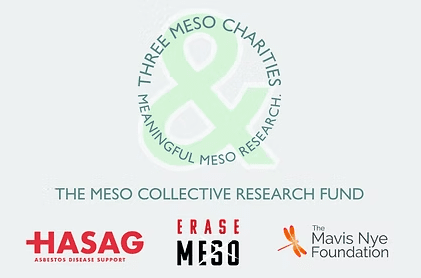PREDICT-Meso PI Prof Kevin Blyth and partners Glasgow have successfully been awarded funding from the Meso Collective Research Fund- a joint funding bid from HASAG, ERASE Meso and the Mavis Nye Foundation.
This new project, MesoSCAPE (Mesothelioma Spatial Characterisation of Aberrant gene expression Promoting Evolution), will allow PREDICT-Meso to carry out spatial transcriptomic analysis on the tissues we are collecting as part of the wider programme.
The funding allows us to add an addition omics layer to planned work (genomics, epigenomics and transcriptomics), and has funded another year of Clinical Research Fellow, Dr Mark Neilly.

Many cancer drugs are targeted at rapidly dividing, mutated cells (e.g. chemotherapy) but these treatments are generally ineffective in mesothelioma. Previous studies of cancer cell DNA also do not explain how mesothelioma develops and why it is so aggressive. This may be because mesothelioma also involves activation of nearby cells and reprogramming of their ‘normal’ functions to favour tumour growth and aggressive behaviour. These cells include ‘fibroblasts’, which support the structure of the cancerbearing tissue, and immune cells, which respond to injury and infection. In this project, we will use state-of-the-art laboratory methods that combine microscopic tissue imaging with RNA sequencing to work out which of the many cells adjacent to mesothelioma cells in tissue biopsies support tumour growth, and how they do this. RNA makes active proteins from coded DNA, so RNA sequencing will reveal which ‘normal’ programs inside nearby cells have been activated (or suppressed). This new information could transform our understanding of how mesothelioma develops and reveal new targets for effective treatment.
